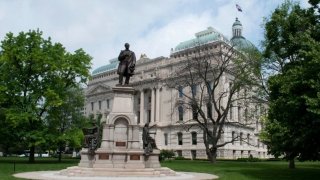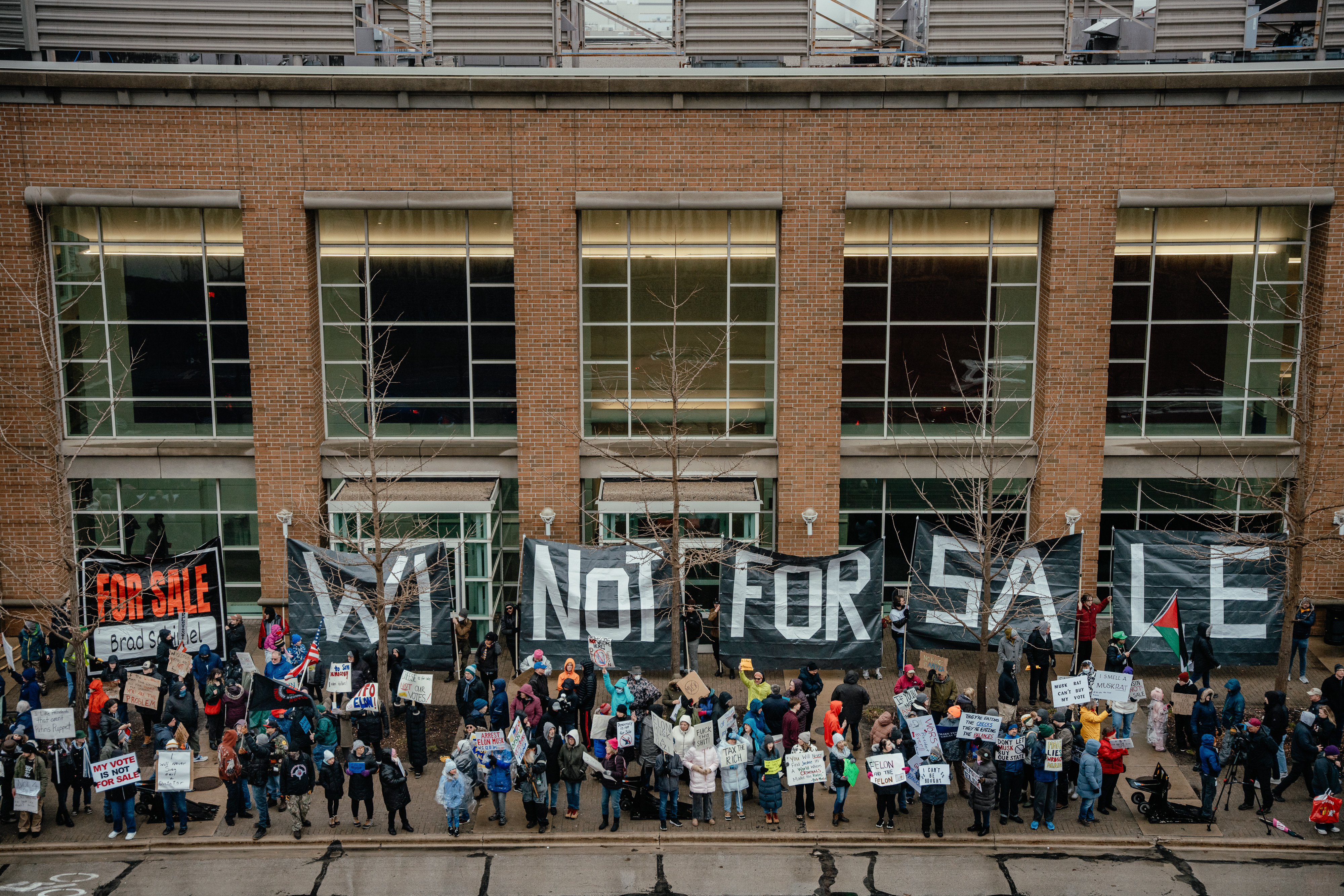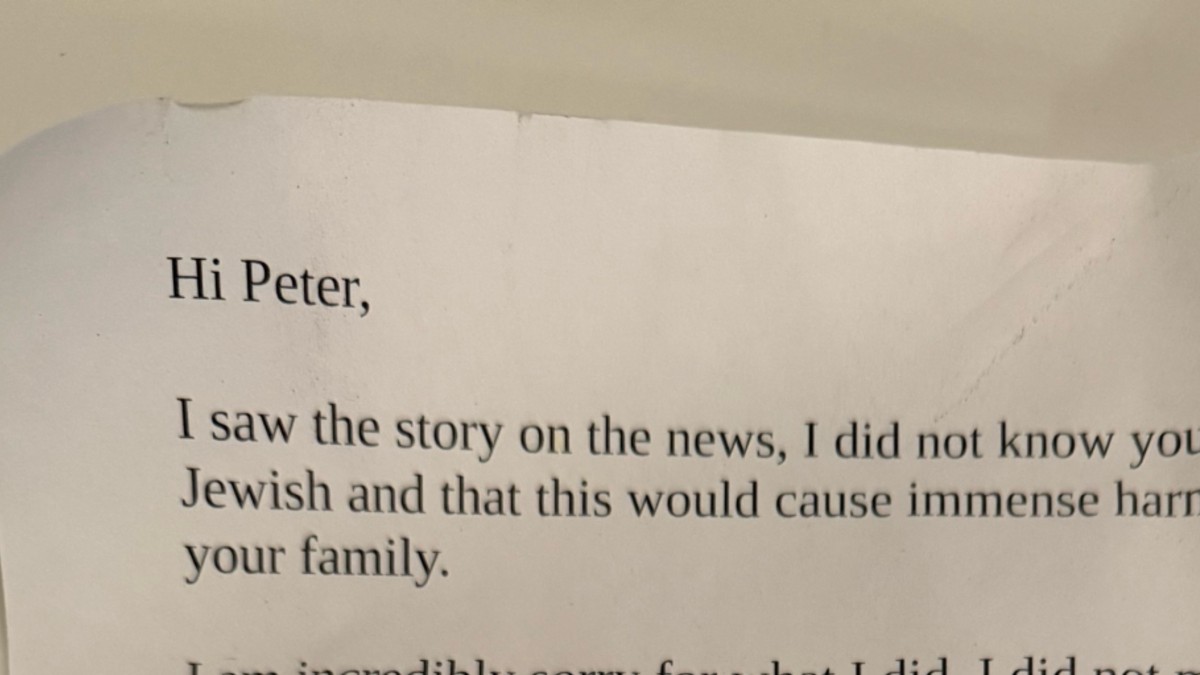
Indiana lawmakers wrapped a legislative session conducted under the shadow of the COVID-19 pandemic Thursday with nearly unanimous backing of a more robust state budget than they had imagined a few months ago.
The Republican-written budget plan calls for spending $37 billion over the next two years — highlighted by an overall school funding increase of about 4.5% each of the next two years. That is more than double what budget negotiators had proposed before new projections released last week showed state tax collections should bounce back stronger than expected from the pandemic recession.
The budget bill supported by Republican Gov. Eric Holcomb cleared the House in a 96-2 vote and the Senate by a 46-3 margin. Several Democratic legislators called it the best state spending plan in years, crediting President Joe Biden and congressional Democrats for helping the state with $3 billion in federal coronavirus relief money.
The state budget also includes money for numerous economic grant programs and construction projects drawing on that federal money, includes $500 million toward a regional economic development grants program, $250 million for broadband internet expansion grants and $160 million for water infrastructure projects.
Republicans described the budget plan as focused on helping the state’s economy grow in the coming years and helping to boost Indiana’s lagging teacher pay.
Republican House Majority Leader Matt Lehman of Berne called it a “wow budget.”
“This says Indiana is going to grow, we’re going to grow rapidly,” Lehman said. “We’re going to put broadband into your communities, we’re going to build water infrastructure in communities. And we are setting the table to grow rapidly.”
Local
The projected school funding increases of 4.6% in the budget’s first year and 4.3% in the second follow a decade of Republican-written state budgets that raised that funding by an average of about 1.5% a year, drawing criticism about school spending not even keeping up with inflation.
Democratic lawmakers said the school funding boost was long overdue, while questioning why Republicans wouldn’t dedicate money toward statewide pre-kindergarten programs and pushed through an expansion of the state’s private school voucher program that could increase its cost by 50% over the next two years.
Feeling out of the loop? We'll catch you up on the Chicago news you need to know. Sign up for the weekly Chicago Catch-Up newsletter.
Democratic Rep. Carey Hamilton of Indianapolis said Indiana teachers had been “under siege” for too long and that she hoped the budget increases would lead to significant pay raises.
“This tells our teachers they are important, and we support them,” Hamilton said. “I’m grateful we are doing that.”
A commission appointed by the governor found it could cost more than $600 million a year to increase Indiana’s average teacher salary ranking from ninth-highest to third-highest in the Midwest.
State government’s cash reserves that took a big hit last year in the early months of the coronavirus pandemic are expected to reach about $2.3 billion when the current budget year ends June 30 — topping pre-pandemic levels. Republicans anticipate those reserves to grow by 15% to about $2.7 billion over the next two years, which they say is needed to protect the state from any future economic slowdowns.
Democrats criticized Republicans for not conforming state law with a federal American Rescue Plan provision excluding the first $10,200 of unemployment benefits accrued in 2020 from federal taxes for most people while possibly shielding businesses from future tax increases by directing $500 million in federal relief money toward the state’s unemployment insurance trust fund.
Republican argued they were keeping current state policy of treating unemployment benefits like any other income. But Democrats said many people who lost jobs during the pandemic will be hurt when the deadline for 2020 income taxes arrives.
“This is going to be the May 15th surprise from the state of Indiana,” said Democratic Sen. Tim Lanane of Anderson.
Members of the Indiana House met Thursday in their traditional Statehouse chamber for the first time during 2021 after holding their meetings in large conference room of a state office building to allow more space for coronavirus precautions. But having avoided significant COVID-19 disruptions over the past four months, lawmakers had a more ceremonial end to their regular annual session.
Lawmakers, however, are expecting to return to the Statehouse later this year in order to approve new congressional and General Assembly election districts because of delays in receiving redistricting data from the Census Bureau.



